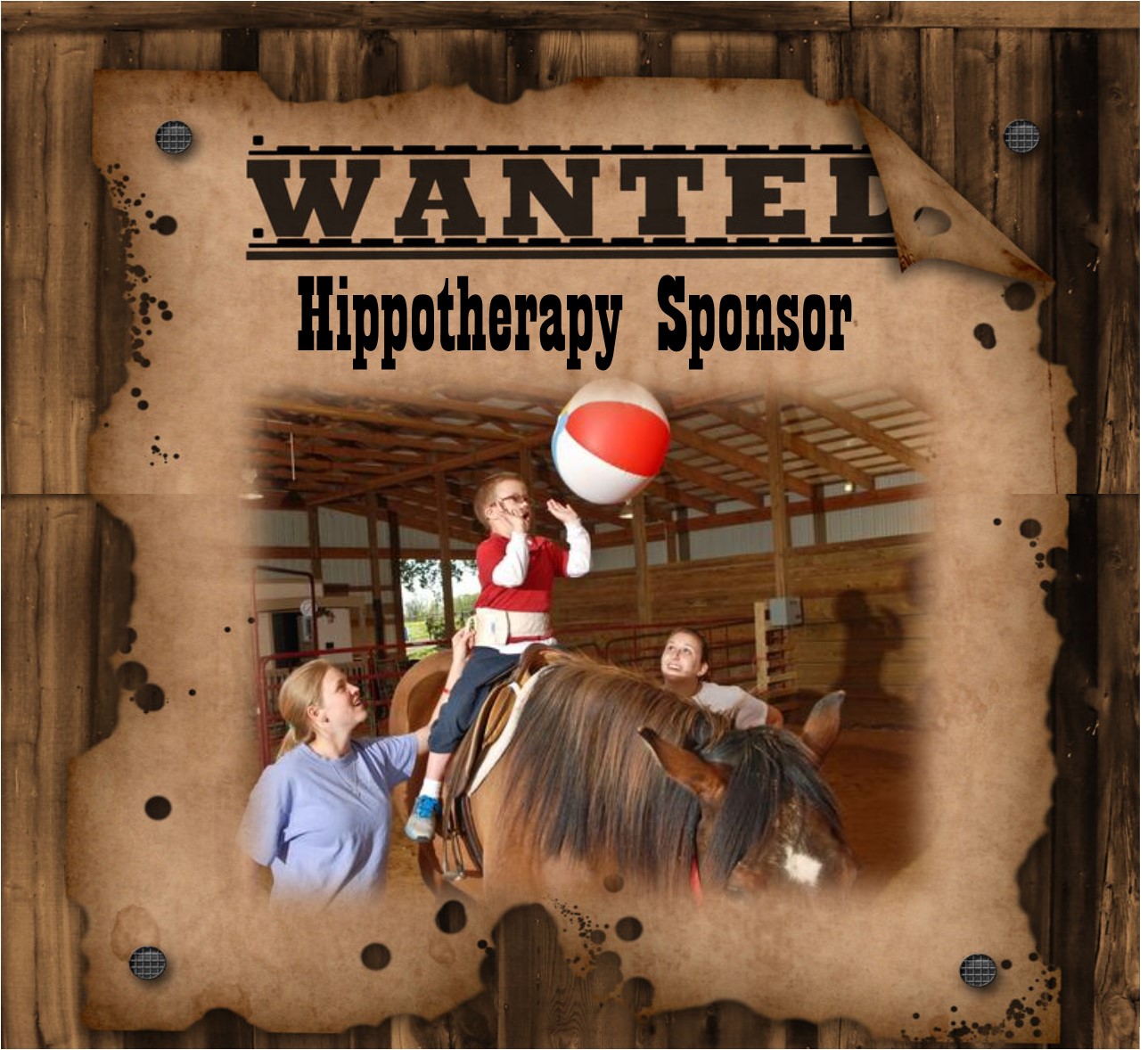Hippotherapy is the use of horseback riding as a therapeutic or rehabilitative treatment. The movement of the horse affects a rider’s posture, balance, coordination, strength and sensorimotor systems.
It is believed that the warmth and shape of the horse as well as its rhythmic, three-dimensional movement along with the rider’s responses to the movement of the horse can improve the flexibility, posture, balance and mobility of the rider.
This program differs from therapeutic horseback riding, because the work is one-on one, and the rider does not direct the horse. Licensed health professionals including physical therapists, occupational therapists and speech-language pathologists guide the rider’s posture and actions while the horse is controlled by assistants at the direction of the therapist.
The horse’s unique walk transfers variable, repetitive and rhythmic movement to the client, which provides sensory input to the brain and nervous system. The resultant responses in the client are similar to human movement patterns of the pelvis while walking. An average horse takes 120 walking steps per minute, allowing 120 chances each minute for a client to experience this unique movement that cannot be replicated by another apparatus or equipment. During a session the therapist, working in conjunction with a specially trained horse handler, can grade or adapt this movement to provide a “just right challenge” for each client. Most clients respond very enthusiastically to hippotherapy treatment and thoroughly enjoy the opportunity to engage with the horse in an environment that is much different than a typical therapy clinic.
Who benefits from hippotherapy?
A wide variety of individulas can experience benefits from hippotherapy. Some diagnoses commonly treated by this therapy include:
- Attention Deficit Disorder
- Autism
- Cerebral Palsy
- Closed Head Injury
- Developmental Delay
- Down Syndrome
- Emotional Disorders
- Hearing Impairment
- Multiple Sclerosis
- Muscular Dystrophy
- Paralysis
- Scoliosis
- Spinal Bifida
- Traumatic Brain Injury

